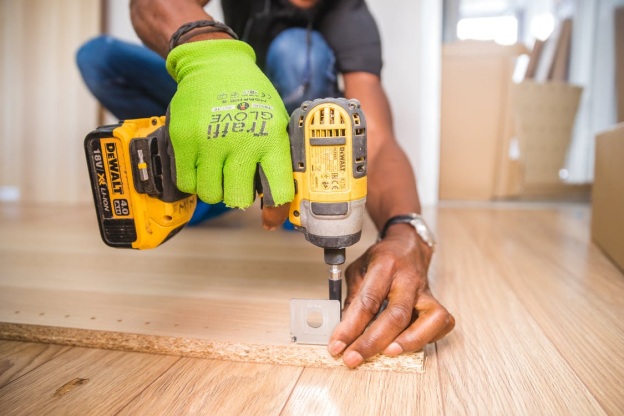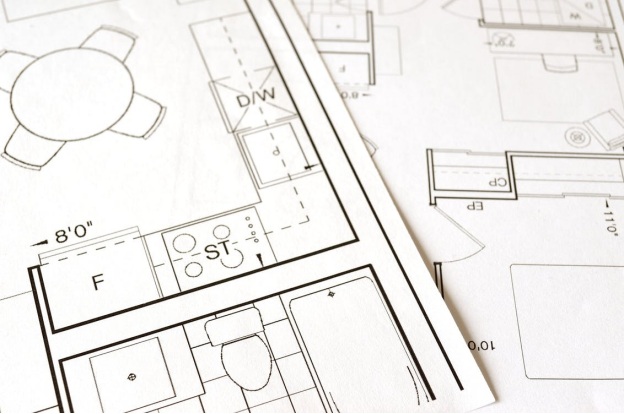Why should you consider Hard Money Loans over traditional lending – Infographic
A short-term loan taken from private investors or individuals lending their own money is referred to as hard money lending.

A short-term loan taken from private investors or individuals lending their own money is referred to as hard money lending.

Bridge loans are a type of short-term financing that’s commonly used by homeowners who want to buy a new home before selling their existing home.

You’ll need approval for a loan before receiving the money you need to begin with your building project. The loan will not be collateralized or secured by property; therefore, the process is usually more rigid and strict than other loans and mortgages.
In addition to enforcing usual borrower conditions, lenders will examine and approve your budget, the approximate construction period, and the architectural blueprints of your project before approving the loan.
This blog will guide you on the prerequisites to get a construction loan approved.
To minimize risk, lenders only accept the application for construction loans when the borrower has a credit rating of 690 or better.
That’s the least; other lenders may insist on a 730 or higher credit score. Consider improving your credit score to minimize the chances of your construction loan application getting rejected.
Apart from having a good credit history, you should also have funds to manage payments on your current debts as well as the new mortgage you’re taking out.
Your lender will ask for financial documents and other documentation confirming your yearly earnings to verify this.
The ratio of all your monthly debt payments to your gross monthly income is known as the debt-to-income (DTI) ratio. The lower your DTI, the better it is because you’ll have more money in hand every month to pay off your loans.
To approve construction loans, money lenders look out for a Debt-to-Income ratio that’s less than 45% to increase the probability of borrowers making their payments.

When seeking a construction loan, you are normally expected to put down a 20% down payment. Many lenders even demand a higher percentage—between 25-28% of the construction expenditures.
Depending on your lender, you might have to pay private mortgage insurance if you make a down payment of less than 20%.
The uncertainties and risks involved in constructing a home compel lenders to check all details about the upcoming project.
You must submit documentation such as a signed construction contract, payment schedule, comprehensive designs and specifications, and deed or purchase offer to increase the chances of your loan getting accepted.
You’ll also need to prove to the lender that your builder and architect are insured, licensed, and qualified. Proof of financial stability resumes, insurance certificates copies of the builder may be required.
You should also explain each party’s responsibilities, such as the architect’s and the general contractor’s role in the building project.

If you’re looking for construction loans for your next investment, consider reaching out to Commercial Private Equity!
At Commercial Private Equity, we provide private specialized loans, including workout loans, raw land loans, construction loans, and bridge loans. To make loan acquisition easy for our clients, we also have a three-level loan program with different loan requirements
Contact us now for more information.
Should you apply for an owner-builder loan or a construction-to-permanent loan?
Whether you’re a homeowner looking to construct a home from scratch or a new builder who’s looking to secure the right construction financing from private money lenders, this blog is the ultimate guide for you.
Before we uncover the different types of construction loans, we’ll delve deep into what construction loans are, who should apply for them, and how builders can qualify for these short-term loans.
Construction loans are extended to borrowers who want to complete the construction of offices, homes, and other properties on a parcel of land. These short-term loans are extended to borrowers as a line of credit loan that’s released in sync with the construction progress and milestones. Since construction loans are short-term and scheduled to last up to a year or sometimes more, the borrower can obtain long-term funding later.

Moreover, a borrower can refinance the construction loan into a permanent mortgage or take out a new loan to pay off the construction loan.
Construction loans aren’t a one size fits all!
We explain the different types of construction loans used by either builders, buyers, and developers to execute their construction projects successfully.
Don’t want to go through the hassle of finding a mortgage after you’re done constructing your home? A Construction-to-permanent loan might just be the right solution for you!
This specific construction loan allows developers and builders to finance the property’s construction until its completion. Once the building has been completed, the borrowers can convert this loan into a fixed-rate mortgage and save the closing costs on their construction project.
This short-term loan is ideal for borrowers that are confident about the high-value sale of the completed project but only need immediate cash flow to initiate the construction.
Once the construction has been completed, the borrower will need to repay the entire loan by the end of the loan term or refinance it into a mortgage.
Usually, borrowers who apply for a construction-only loan need to submit two applications and require two closings. The first process is to secure the construction-only loan before the completion of the house. The second application and closing process are required to refinance the building project and secure a mortgage for it.
Maybe you just bought a complete house but feel that it needs some renovation and fixing to do. Homeowners and house flippers can take up a renovation construction loan from their lender. This type of loan is extended to developers, house buyers, and house flippers who want to carry out extensive renovation projects. The borrowers can use the funds from renovation construction loans to finance the purchase of a new home and cover the costs of renovations the new property needs.

Lenders specify the loan amount based on the expected value of the house after the renovations have been completed.
Before you embark on a search for a construction loan lender, know if you qualify for one or not.
Most lending firms will require builders or developers to present approvals and piles of paperwork to approve the construction loan.
Since construction loans are high-risk financing solutions, the lender might need to review your credit score. While a 680 credit score is considered decent, a credit score higher than 720 will instantly get you approved for the construction loan. Moreover, the lender will need to look at the borrower’s history and ideally have a low debt-to-income ratio to qualify for the construction loan.
If you need to get that construction loan as quickly as possible, you’ll need to make a hefty down payment!
A down payment higher than 20% will assure the lender of your genuine interest and reduce the risk for their investment.
A carefully crafted construction plan can help borrowers secure a construction loan quickly.
Before you head out to apply for a construction loan, ensure that you have a comprehensive plan and specifications of the building.

Compile the blueprints, illustrated images, budget, resources, and computer-aided designs that show the complete requirements for a construction project.
A lender might want to get an appraisal performed to evaluate the land.
They’ll need to perform their own appraisal of the land you have, the building that’s being constructed, and the anticipated value of the completed property. This appraisal might determine the value of the construction loan being extended to the borrower.
While construction loans can come with high-interest rates and larger down payments, this shouldn’t prevent you from taking out a loan and building the property of your dreams. Here’s how borrowers can choose the right construction loan lender and take out a short-term loan for their obligations.
Borrowers should get in touch with a lending consultant and pose a few questions like;
Popping these few questions will let you know if you should opt for the first lender or further scan the markets to find the right one.
A private money lender can help you secure a short-term construction loan in no time! At Commercial Private Equity, clients can get in touch with our consultants and seek out construction loans according to their financial obligations.
Our senior partners at Commercial Private Equity offer low-interest rates and low loan to value construction loans that lower risks for our clients and our firm!
Looking to secure a construction loan for your house building project? Give us a call at 404-301-8633 to learn more about our hard money loans, bridge loans, and construction loan policies.
Call Now! Doesn’t it make sense to contact us today to see if we can help?
